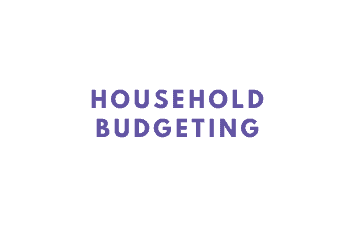Savings Challenge: Tip 3
7 March, 2023Mapping out a household budget can seem daunting.
To help, we’ve created a monthly budget planner for you to download and populate. It contains sections for most of your incomings and outgoings, from household rent to entertainment, food and pets. It also has projected and actual costs, as well as savings and loans. Amend as you see fit, but it could be a good place to get started.
Here are some more tips for managing your budget.
1. Map out your monthly spend
A good place to start is your bank account and Credit Union account statements over the last six months. Map out your expenditure and be honest with yourself where your money has gone. This is an important step. If you need to take a payment break from any of your bills, your financial service provider will ask for your history first. Start by looking at your bank statements – it will give you a good picture of all the areas where you are spending money.
Map this in an excel spreadsheet, and divide it into easy to follow categories.
2. Calculate your shortfall
Including your income will then allow you to see how much of a deficit or shortfall you might have.
Including savings into your budget sheet will reveal how long they will last should you need to use them to bridge the shortfall – if you have €1,500 and outgoings of €1,800, you know then that you have to figure out where to pull back on the €300 per month.
3. Separate essential and non-essential spending
Separating your needs and wants will allow you to focus your mind on the money you really need to spend. Essentials may include, food, utility bills, transport, mortgage repayments/rent and insurance. Non essentials include hobbies, putting money away as savings, buying new clothes and even buying lunches out of your home.
If you find cutting back on non-essentials doesn’t allow you enough financial comfort, try cutting back on your essential items. Credit unions, for example, operate on a case by case basis. We work with our members to ensure any financial decisions are made in line with the member’s financial ability. It is important to tackle any financial pressure head on. Leaving them on the long finger will only result in a harsher outcome.
4. See what bills or payments you can delay
If your deficit is bigger than you anticipated, and reducing costs on luxury items isn’t cutting the mustard, the next step is to see who you can contact to postpone certain payments or bills. If you have a loan with a financial provider like First South Credit Union, make sure you visit us to explain your situation – we will be willing to talk to you and try to help.
It is important to have a plan in place in the event your circumstances change quickly. Budgeting and managing your money is a task many find taxing, but it can give you the relief you need and lift some weight off your shoulders.
First South Credit union is always on hand for our members. Giving us a call can be the breath of fresh air you need in these testing times. You can find our contact details here.
BUDGET TEMPLATE: Credit-Union-Monthly-Budget-Template
Links to original articles:
https://www.creditunion.ie/blog/household-budget-template-download-here/
https://www.creditunion.ie/blog/managing-budget-step-by-step-guide/


